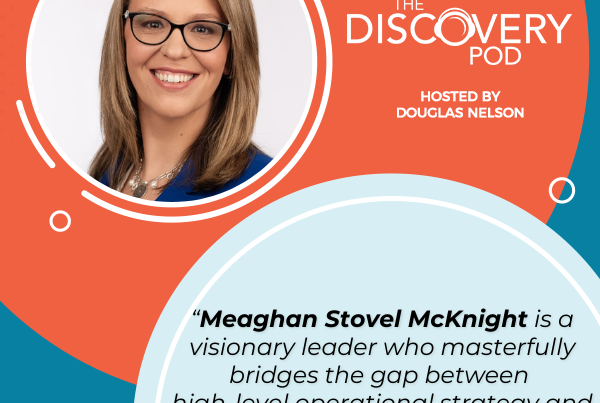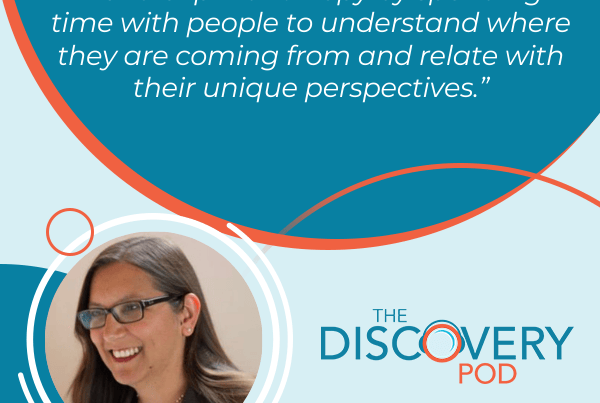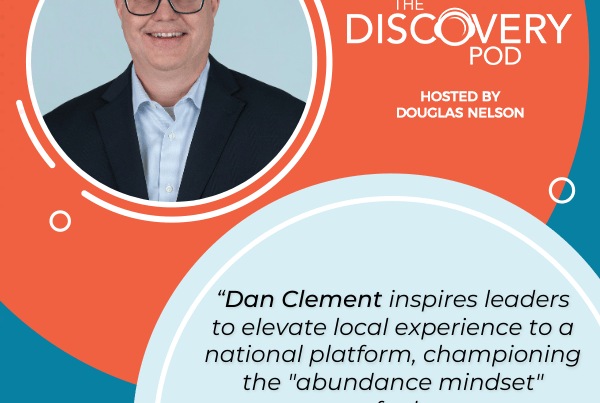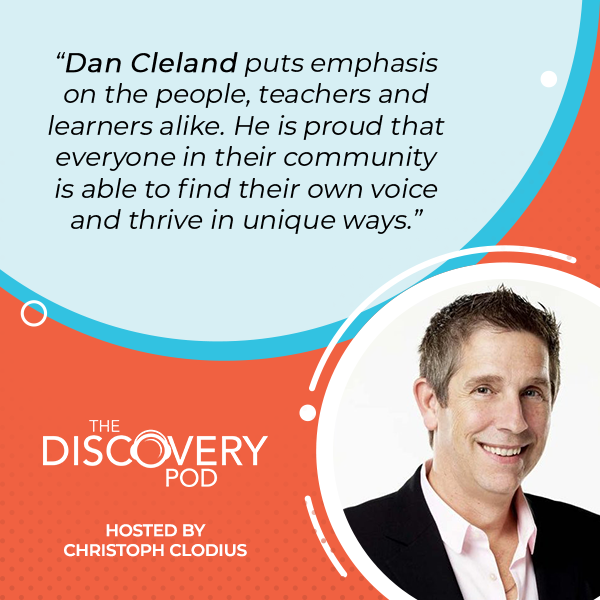
The Sarah McLachlan School Of Music offers an annual inclusive and barrier-free musical program to more than a thousand kids in Vancouver, Edmonton. Diving deep into this after-school community with Douglas Nelson is its executive director, Dan Cleland. He talks about their leadership approach and culture that perfectly balance creativity and professionalism, giving children a positive space to develop their musical talents. Dan also discusses how they conduct various fundraising initiatives to finally establish a sustainable funding and ensure that the noble efforts of their school can continue for many years to come.
—
Listen to the podcast here
Sarah McLachlan School Of Music With Dan Cleland, Executive Director
I’m pleased to be joined by Dan Cleland who is the executive director of the Sarah McLachlan School of Music. Dan, his team, and I are going to be working together on the director of development search. We are going to talk about that in this episode, as well as the school and a bunch of other wonderful things that are going to come up as we talk. Welcome to the show, Dan.
Thank you. I’m very happy to be here. Welcome, everyone.
Let’s dive right in, Dan. Let’s talk about the school first and foremost. Tell me about the Sarah McLachlan School of Music.
Lots to tell you here. The Sarah McLachlan School of Music is an after-school community music program founded by Sarah McLachlan. The purpose is to annually offer inclusive and barrier-free musical programs to about 1,000 kids in Vancouver, Edmonton, and our satellite location in Surrey. We operate five days a week for 38 weeks which accounts for approximately 40,000 hours of instruction. Our students range in age from 8 to 18. We also serve a smaller number of children under five with appropriately titled Music Makers program or Young Music Makers program.
We have a retention rate of 80%. Most of our students stay with us for eight years. We are very proud of that. Since we opened our doors in 2002, we have witnessed many lives transformed through the power of music at no cost to parents or students. In the school, we prioritize access, acceptance, and flexibility at every stage of our model, working to reduce barriers by providing free transportation from schools designated as high need. We even offer a healthy snack program so students are nourished and hunger does not prevent anyone from getting to their class. We are pretty proud of our organization.
You should be. That’s fantastic. I want to highlight a couple of things there because as I learn about the school, it’s not a conventional school of music. It’s not a commercial enterprise by any means. I do love the logo. It says “Find your voice.” It specifically helps and empowers students. What is your why, Dan? Tell me why you do this work that you do or if you want to illustrate how you got involved with the school to start with.
I was a tour managing Sarah in 2002 and 2003. I met her way back then. She had just finished up Lilith Fair a few years earlier. It’s a very successful tour and she wanted to start a school and give back. I became more and more aware of it over the next few years. We were touring quite a bit and the school was very early on in its existence. A few years later, she asked me to join the board and I have been involved with the school for quite some time now as a board director and now as the executive director.
I love it there. I have been involved in the program for a long time and I have witnessed on countless occasions the positive change that occurs in our school for the students in our community that we have. Sarah’s idea originated around the end of the Lilith Fair. She had a very successful tour and wanted to do something to give back and she started the school. Since the inception of the program, we have witnessed music in public schools going away with the budget cuts and all that. It makes the work and the why even more important. It is a great place for kids to come after school and be in a great inclusive community where they feel safe. We are very proud of it.
That’s amazing. As you should be, the word community comes up so often. I love the community that you have built and you do it through so many different tools through music, education, and space in place. You mentioned the food, security, and providing some snacks. Those are all holistic pieces that add up to a compelling and wonderful program. Having seen the school, and you’ve been a part of it as long as you have, you’ve seen this growth since 2002, what are you most proud of? We could spend all our time talking about this I suppose. From your perspective, what resonates for you so far?
I think Sarah would agree that we are most proud of our amazing administrative staff and our incredibly passionate instructors. They all help teach respect, equality, empathy, and the importance of being active and engaged members of our community. They do this with a style of grace and humility. They are true believers in our work and are dedicated to ensuring accessible, inclusive, and equitable musical programming. They are amazing people and we all need to be seen to be heard and to be valued. We all want to feel connected and be part of something bigger, respected, protected, and connected.

School Of Music: Everyone needs to be seen, heard, and feel valued. We all want to be respected, protected, and connected.
Respected, protected, and connected. That’s fantastic. I like that. I may borrow that. That’s great.
Since I came from Sarah’s production, I am also proud of connecting with the friends we meet on tour, the vendors, and all these folks that we have relationships with. I try to leverage those relationships to help the school and probably one of the most amazing things that happened in my past. In 2006, Sarah and I went from New York to San Francisco overnight to do Steve Jobs’s Apple talk. It was the launch of iTunes for Windows. We went backstage after and I got to meet Steve Jobs and a couple of the other executives there. Sarah and I were touting the joys of this new school that had been going on for a few years. We got back to Vancouver, and a few weeks later, a whole bunch of Apple computers showed up.
That’s from a conversation we had backstage. They would not acknowledge that they had donated anything. It happened a second time a few years later, but great people. That’s one of the proud things that I am able to do while I am out running around with Sarah while we are doing live shows. It’s those connections that get the donations like guitars and amps guitars. We have got a great relationship with Yamaha. That’s one thing I have managed to keep going for a long time. We are well equipped on the musical equipment side and the computer side at this point.
That’s all pretty good. The technology is there. I’m sure we are going to talk a little bit more about some of the fundraising needs and what the future may hold there. Since you put that emphasis on people, it’s great to see and hear that you’re most proud of the people, the staff, the instructors, the teachers, the students, and the community members. Thinking about work culture a little bit within the school, what is that culture you are trying to create amongst your leadership group, amongst the staff group, and amongst the teachers? How would you reflect on that?
I want to make sure our staff is treated with the utmost respect that they certainly deserve. I feel and am a strong believer and also Sarah that everyone has a role of equal importance in the overall success of the program. We have restructured recently and our leaders continue to provide the safe, accepting, and positive space that our students need. We have an amazing leadership team there. Most of those folks have been there for ten years plus. I truly respect them. They are a great group of people.
When I first became involved with Sarah in 2002 as the tour director and manager, I can tell you that it started with Sarah. It’s the one thing I was most impressed with in our unique world of live music which can be very unique. Sarah is widely respected amongst all the crew and band that has ever toured with her. She is the most professional and respectful boss. Sarah and I both know that leadership is best accomplished with a respected team of people who all have a voice at the table.
Leadership is best accomplished with a respected team who all have a voice at the table. Share on XI feel my leadership style is built on the strong relationships and trust we have within that leadership group. By the same token there, we now have about 55 employees. I hired a Director of Human Resources. We now have an HR department and I thought that was a big thing. That has worked out well for us. People have a place to go whenever they have questions or even considerations or complaints. They have a place to use their voice and we deal with it respectfully. I like Julian. She’s our director. She’s fantastic. She is very professional.
I will enjoy working with her too for sure. That’s excellent.
Culture is very important. Again, great people.
The one thing that has come through if I may, it has a bit of an aside. I like that you are talking about having hired an HR person because that did not exist before. It speaks to the professionalization of the organization and how you are trying to position the school because you’re founded by artists. You are a very grassroots organization. You have that element of your culture and that creativity, but it’s also balanced by these highly professionalized specialist experts in their field or area. Do you want to talk about balancing those two sides at all? I think that’s a key piece for somebody coming into the role and understanding the school.
It is a unique school. I don’t think there is anything like it. Other folks are doing it and we are all very good friends with everybody that’s doing this in the space in Canada. That’s for that matter, but it is a unique place. We are run mostly by musicians, artists, and some brilliant people, very highly intelligent people. We do a lot of fun things. We are heading out to Tofino here for top leadership and managers. I think there are twelve of us going out to Tofino. We’ll have a kind of Pro-D day where we’ll be talking about our strategic plan for the next three years. It’s also a team-building experience where you can surf or walk the beach and have fun.
We like to do things like that. We try to get everybody together outside of the school and hang out, talk, and socialize. Everybody likes everybody so that sounds good. The touring world, our staff there is amazing. Sometimes they get mad at me for pushing this all the time, but I like to do the, “Oh Jesus. I am a big fan of the staff showcases.” Our teachers teach a lot, but do they ever get to show off on stage? Not much.
That’s another thing I like to do. We have parties sometimes in the school where everybody gets a chance to play and hang out. We also do it on the professional side. We do have Pro-D opportunities and we do have a budget for professional development. That includes a variety of topics and opportunities. There are a lot of cool things that happened aside from teaching.
Fair enough. If you do not like music, this is not the place to be, fundamentally. The teachers can show off a little bit too as you say. Let’s get that a little bit. Go ahead.
When people come into the school, they have to come in and see how it works and see how it operates. If you have seen a university or some institutional background, we are not like that. We are unique in our programming and what we do, which is a very good thing.
Let’s pivot to the uniqueness of fundraising then at the school. The Director of Development is going to be the fundraising lead, working very closely with you, working closely with other teammates. I’m sure we’ll talk about Sarah and her involvement at some point as well. Thinking about why now, what’s exciting about fundraising at the school of music? Tell me a little bit more about that.
We have grown and we continue to grow and so does our annual budget. This year with over a thousand kids in the program in three locations and 40,000 hours of program as I mentioned earlier, we are focusing on long-term sustainable funding. We have Sarah and we have opportunities to raise money with Sarah.
At some point, we need this school to stand on its own legs and succeed. It needs to be there 30 years from now. That’s my goal this year. It is to work on that. We do not receive any government funding and Sarah continues to personally cover all the administrative costs for the school still every year. This means that donations go directly to the kids who need it most, but we need to focus on long-term sustainable funding. We have an annual campaign and endowment campaign, in which we already have a fairly sizable endowment started. We need to grow in that department and get it right so that the school is there for a long time.

School Of Music: Donations to the school go directly to the kids who need it and in building long-term sustainable funding.
Tell me more about that. Like what do you envision the director doing? How will this person work with you, work with the team members, and so on?
Our goal is to increase our annual funding and also to improve our communication with our stakeholders and to begin as I said to focus on the long-term sustainable funding to take as well into the future. We are looking for something to join the organization to steward our existing donors, meet new donors, and work with Sarah. We have a great board of directors both on the foundation side and the school side. It’s very important that we start to pay attention to fundraising with different initiatives and different opportunities. I have always wanted Sarah to do a commercial for the school. That has to be well written. There are all kinds of things we could be doing. We just need to find somebody to help us take that across the finish line.
I am certainly getting the sense. You have alluded to a few things. You’re in great shape. From what I know of your fundraising, you have a plethora of big names that are already donors. I have talked about this great work developing relationships that are some of that strategic serendipity getting these products from Apple for instance. You and Sarah have no fear of asking and engaging people. That systematizes the professionalizing of the department. The pieces are all in place. It’s a matter of gathering those pieces and taking those next steps and building them fundamentally.
Tell me a little bit more about Sarah. She’s involved. Her name is on the school. She’s a key player here when things get down to it, but we don’t want to give anybody the impression that she’s in the school on a daily basis. She has a life and a career outside of school, but this isn’t something that she’s passed off. This is something she’s passionate about and very involved in. Tell me more about her and her work there.
She is the Board Chair at both the Sarah McLachlan School of Music and the Sarah McLachlan Foundation Board. She still is heavily involved, but in this Director of Development job, you would have a strong working relationship with Sarah. She’s an extremely approachable and down-to-earth person who really, cares about the school. We don’t see Sarah as a celebrity. We are lucky to have a celebrity’s name over the door for some of our fundraising initiatives. At the same time, she cares deeply about the school and has invested quite a bit of time and money into it. She’s still very much engaged.
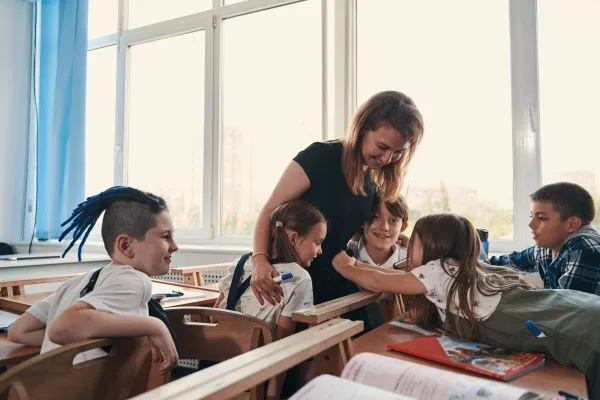
School Of Music: Anyone can have a strong working relationship with Sarah. She is extremely approachable and a down-to-earth person who cares about the school. No one sees her as a celebrity.
That’s one part of it and we would want to ensure that this person develops an excellent relationship with the individuals not only in the school but on the board. Our executive team is fantastic. There has to be some flexibility. There are a lot of moving parts, getting in and seeing and working in the school, and understanding what happens there, learning about the incredible work that our teachers and instructors accomplish. We could talk about annual goals for sure, understanding the existing donor base, and the system. I think that would raise our edge.
We implement strategies for stewardship and developing relationships with not only our existing donors but new donors. We do have fundraising events. We do our Barefoot in the Backyard, which is quite a big event here. We raised $3.2 million in September with Michael Bublé and Sarah McLachlan performing. It’s fun. Those are easy, but we can only do so much in two years. To be candid, we have this amazing system of fundraising but it’s one-dimensional. We need to go beyond what worked for us in the past and that to me equates to long-term sustainable funding.
Getting away from that one-dimensionality, engaging and leveraging the strengths and the resources you have, Sarah and her involvement, but at the same time, not relying on exclusively by any means.
That is a good point because we do have Sarah in a strategic sense, but using her celebrity name when it’s best needed and not using it is a balancing act for sure. It’s tough, but I’m here to help with that because I have been with Sarah for twenty years or so. I know her very well and I can help. We have talked about it for years. It’s an easy situation to grow into. She’s an amazing person. I do say sometimes that she’s the anti-primadonna. She’s very down-to-earth. When we are doing live shows, everybody is always very friendly and fun. We have 70 more shows this year. It’s that kind of approach. Sarah exists at the school in a big way. She’s in there all the time. She knows all the instructors and the staff and participates.
She’s very participatory in this search for that matter as well. She’s very involved and she’s keeping a keen eye and wants to see this person succeed. That’s very compelling. Why would someone want to leave their job and come join you and the team? What’s the pitch for coming to join you? What are you excited about the future of the school?
We are fine. Beyond that, I think it’s an amazing place to work. Witnessing firsthand how it changes lives is a huge part of it. I remember the first time I ever saw a performance and there was a young girl, eight years old, playing piano concerto. Sarah went up to take a picture with her and Sarah said, “Would you like your mom and dad to join us?” She looked at Sarah, “I don’t have a mom or dad.” From that day forward, Sarah handled it very graciously and took pictures. It was an amazing moment and that was many years ago. I have been all in ever since.
It’s nice to give back. It’s nice to make a change in a lot of people’s lives. We do have work with public schools. We do have 9 or 10 theater schools. Their music programs have been completely cut and she is still friends with Bill Clinton. He was a big proponent of music and education and how it should be put back. We are doing it as best we can here in town. I do not know if that answers your question.
Nothing beats the feeling of giving back and making a change in the lives of many people. Share on XVery much. I assume though Bill Clinton and his saxophone have made an appearance at any point, but maybe that’s a conversation for another time.
He came to a fundraiser with us in 2012. His voice is but not with his saxophone.
I have learned a lot here, Dan. Any final messages for potential candidates or curious people as we conduct this search and as we work together to both understand who might be of interest and vice versa.
I look forward to meeting everybody who applies for this position. It’s an amazing opportunity to be associated with Sarah, the school, and the leadership team, and help build a fun development program for this school. There’s incredible potential here to create a successful plan and to be part of building the future. We have a whole bunch of spectacular people involved on the board side and on the community here.
This is the last piece of the puzzle. We need to professionalize. We have spent a lot of time hiring HR and getting things right as a non-profit. I look forward to closing the final chapter and getting this across the finish line.
On that note, for the next chapter for candidates, anybody who is interested, anybody who’s curious, or anybody who has some candidate ideas, please feel free to reach out to me directly. I’m at [email protected]. Check out the Sarah McLachlan School of Music website. A ton of great information on there about all the programs for that matter, all the locations in Vancouver, Surrey, and Edmonton. Lots of information to take in. It’s an exciting opportunity to work with you, work with Sarah, and work with the team in the future. Thanks for tuning in. Thanks for your time here, Dan. It’s a compelling conversation.
It’s fantastic. Thank you.
Thank you. My pleasure.

